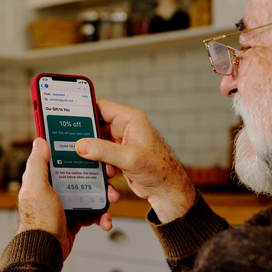Table of contents
Now more than ever, ethical shoppers care about the impact their purchases have on the world. They need to know their purchase has benefited the environment or society, and that no harm was done in the making and fulfillment of their shopping experience. And they want brands to actively participate in that conversation, now more than ever with the COVID-19 pandemic.
According to a McKinsey report, consumers worldwide “look for retailers with visible safety measures such as enhanced cleaning and physical barriers. In addition, they buy more from companies and brands that have healthy and hygienic packaging and demonstrate care and concern for employees.”
Additionally, roughly two-thirds of consumers are willing to pay more for sustainable brands, according to a 2015 Nielsen report. Google also witnessed an eightfold rise in searches for “plant-based diets” in the last two years, and a quintupling in the number of searches for “zero waste.” This mindfulness extends beyond sustainability, from fair working conditions to charitable donations.
Ethical shoppers also want to support or partner with businesses that are doing philanthropic works, but with unemployment through the roof and so many needs not being met around the country, now is the time to double down on charitable giving, especially as the holidays approach.
Read on to learn more about how to reach this type of shopper this holiday season.
Who are ethical shoppers?
According to a Slickdeals April 2020 survey, nearly three in four (72 percent) respondents said that buying something impulsively during the pandemic has positively affected their mood. For ethical shoppers, they want choices where they feel like they’re doing their part to make the world a better place. Here’s what you need to know about them.
They put their money where their mouth is. According to SAP, 51% of shoppers would be willing to spend more on holiday purchases from companies that advocate for a cause or stand for particular values. Sixty-three percent of respondents said they prefer buying gifts from brands known to support specific causes, and 60% actively avoid buying from brands that stand for causes they don’t agree with.
Youth is fleeting, but mindfulness is not. Demographically, millennials are leading the conscientious consumer trend, with 73% saying they’ll pay more for sustainable gifts and experiences, according to Nielsen data.
“On second thought…“ Conscientious shoppers will switch to brands they want to support — without the holiday pageantry. Experts at the Haas School of Business with the University of California, Berkeley found that members from younger age groups especially switch to brands that associate with specific causes at a rate of 90%.
How to meet an ethical shopper’s expectations
Responsible consumers buy products and services that counteract negative byproducts of conventional production and consumption. These effects include environmental harm from industrial farming methods, unfair labor practices, unequal treatment of underrepresented groups, and mishandling of sensitive data, to name a few.
This is also now the perfect time to support frontline and essential workers through your business, like donating meals or supplies to hospitals or teachers, or offering free online workshops, demonstrations or classes for essential workers. That will make ethical shoppers sit up and take notice of your business.
These consumers want to know how to shop ethically and sustainably. Here’s how you can help them:
Define and communicate your values. You can begin communicating your brand’s values on your website, in your eCommerce marketing, and on social media. If it’s not environmental conservation, maybe it’s equal pay for women, the inclusion of minorities in executive leadership, or clean water for rural communities. Fellow cause crusaders will identify with the gutsy move and applaud your goodwill.
Choose an ongoing way to get involved. Once you’ve clarified and spoken about what matters to your brand, learn which established nonprofit you can help in an ongoing way to effect change. Then, give. Corporate giving accounts for just five percent of all charitable contributions, according to The Giving Institute.
Do your part to increase that percentage, and then pay it forward by engaging and galvanizing your own business community to take part. Offer customers and employees a matching gift program, organize a volunteer event hosted by your business, or add a link to the nonprofit’s website from your online store. Remember, ethical shoppers appreciate it when companies are consistent in their values.
Cultivate all types of brand advocates. Social responsibility consulting firm Good.Must.Grow says higher-income buyers and female shoppers are more likely to be motivated by corporate responsibility. But segmenting buyers this way can do both them and your brand a disservice.
Instead, consider using shared values to identify conscientious shoppers, and communicate with them based on those values (not their age, gender, or income level). Once you connect with ethical consumers, encourage them. They know that their dollar has a unique type of power, and they use that influence to bolster causes they care about. Help them do that by cheering them on.
How to catch their eye
Strategies for cementing brand perception among these shoppers vary from conscientious communication to taking a deeper look at how you’re conducting business.
Don’t be afraid to toot your own horn. Tell the world what you’re doing to effect change. Some small business owners hesitate to “brag” about all they are doing to help support a cause. But the COVID-19 pandemic is the perfect time to spotlight how your business contributes to your local community and beyond. Consumers are looking for good news right now. Your generosity may even inspire someone to look into becoming a more ethical consumer.
Inspect your own supply chain for areas where you can benefit the common good. Not sure where to begin? Experts at Sustainable Business Toolkit recommend switching suppliers to include eco-friendly or fair trade ones. Create a page on your website or add a product filtering option to highlight your ethically sourced goods. Also consider swapping conventional gift packaging for recyclable materials (including soy-based ink) or adding more efficient shipping options to your online checkout.
Offer an avenue for partnership. Give your audience and customers a way to participate. Last year, over $400 million was donated online on Giving Tuesday alone. This seven-year-old holiday is indicative of the rising desire consumers have to counter their consumption with jolly magnanimity. Celebrated on the Tuesday after Thanksgiving, #GivingTuesday is the perfect time to band together with socially conscious and ethical shoppers.
A Checklist for Reaching Ethical Shoppers
- Share your brand’s values to let shoppers know you care.
- Choose an ongoing way to be involved, through volunteering opportunities or donations.
- Optimize your own supply chain to be more socially responsible.
- Advertise what you are doing to be more conscientious in how you do business.
- Offer a way for consumers to partner with you in charitable ways.
In addition to your products, you can continually promote your brand story and values to your customers. Give them peace of mind that comes with knowing their festive purchase did good, and not harm, to the environment and society.
![]()











